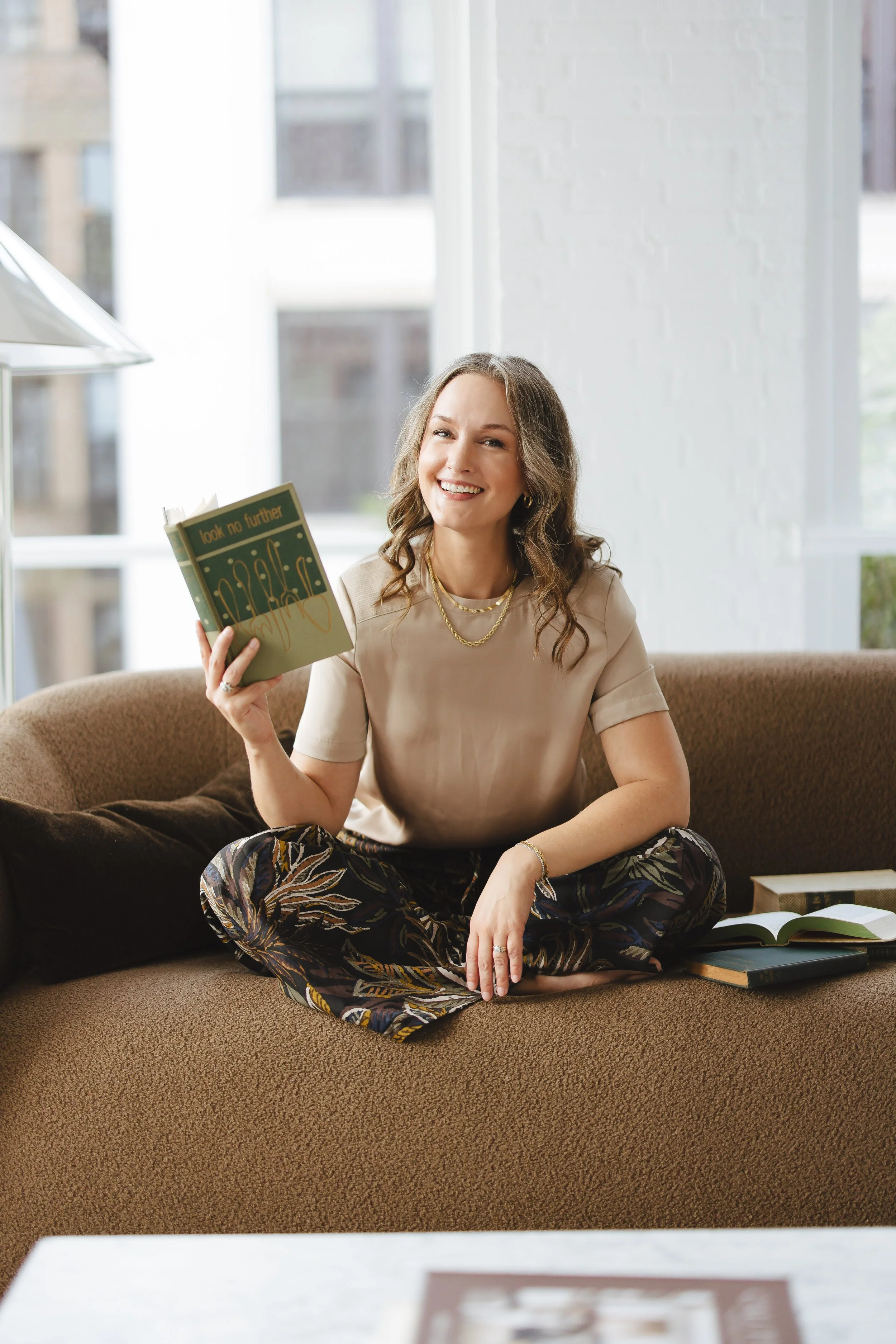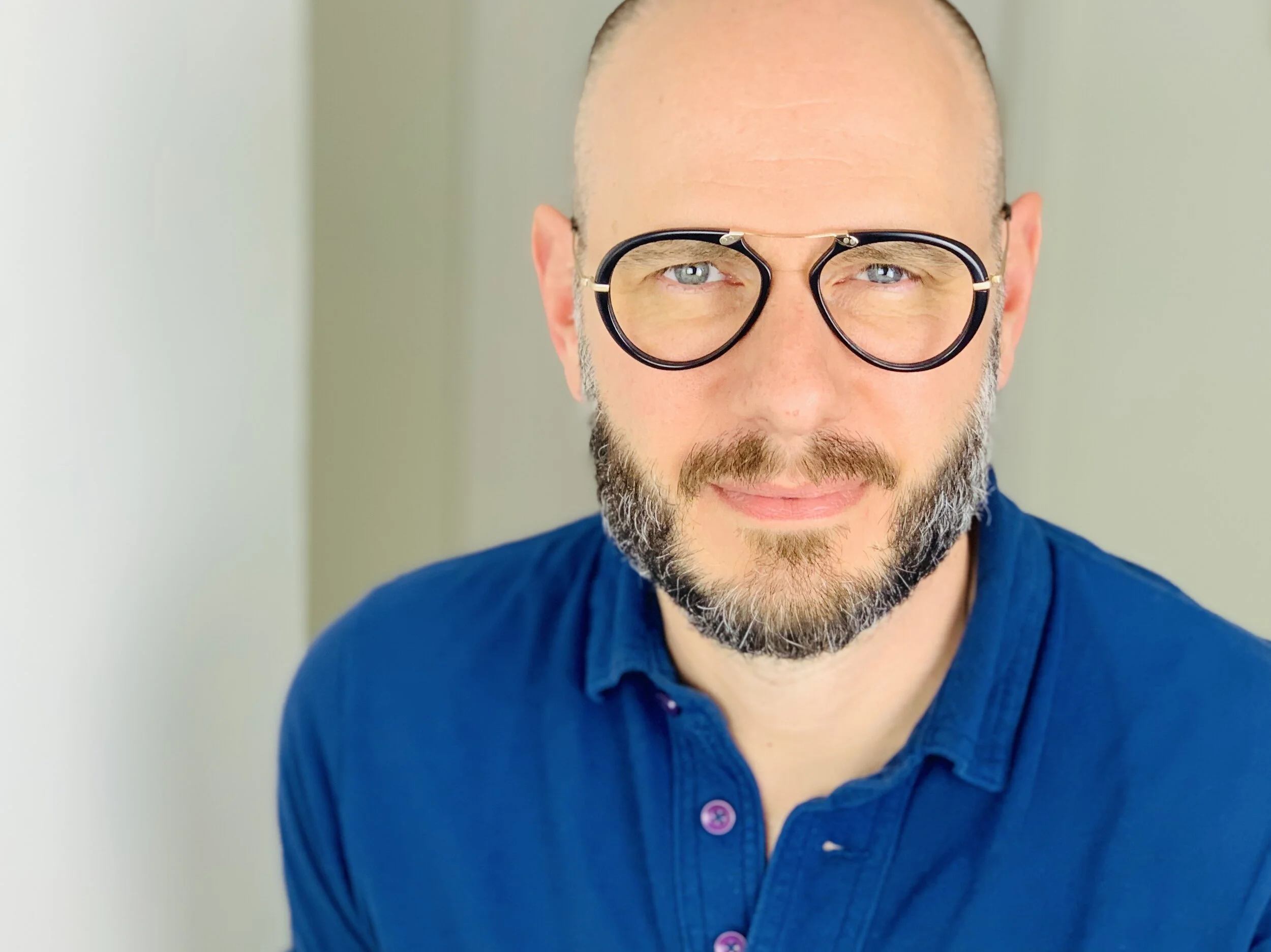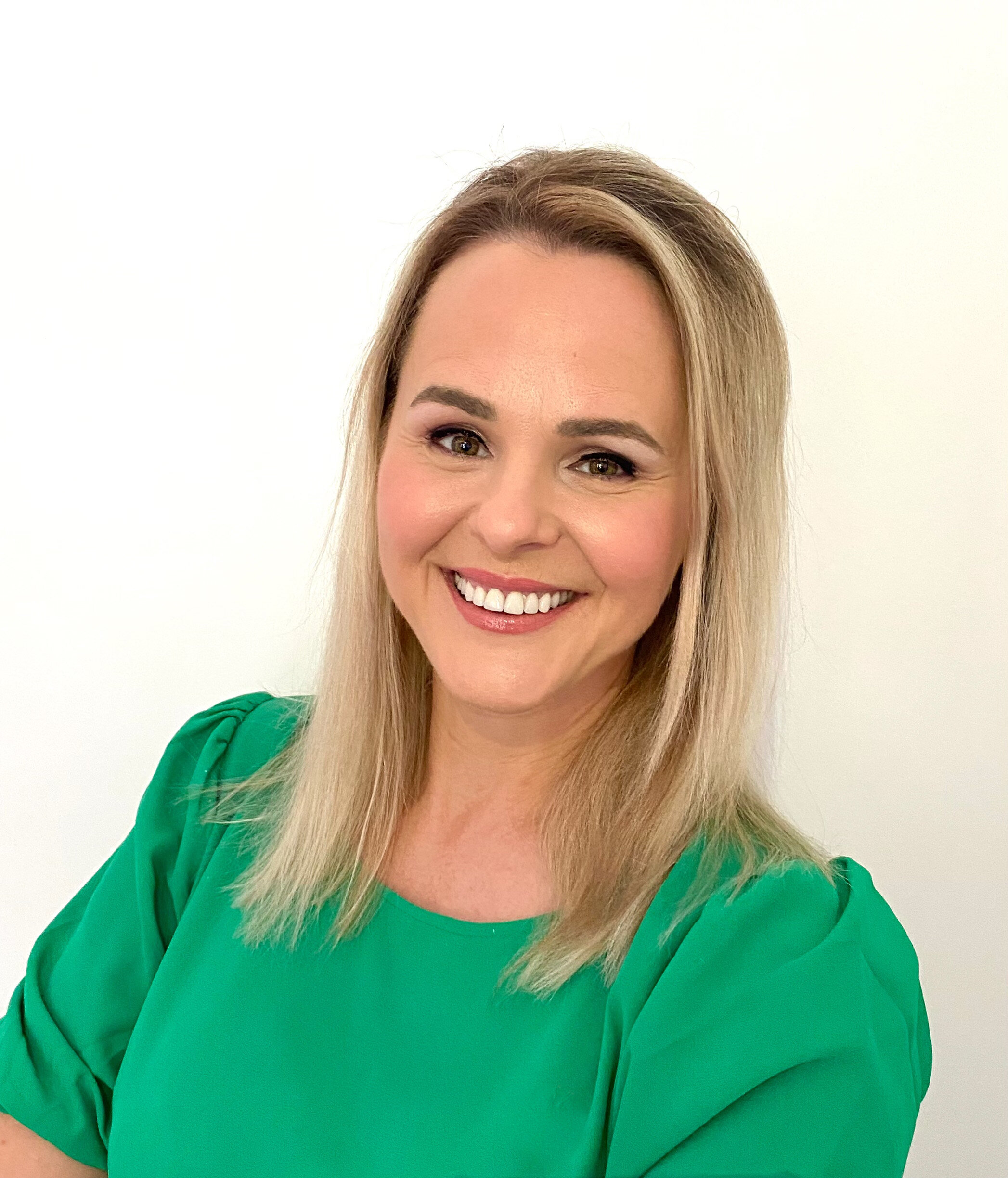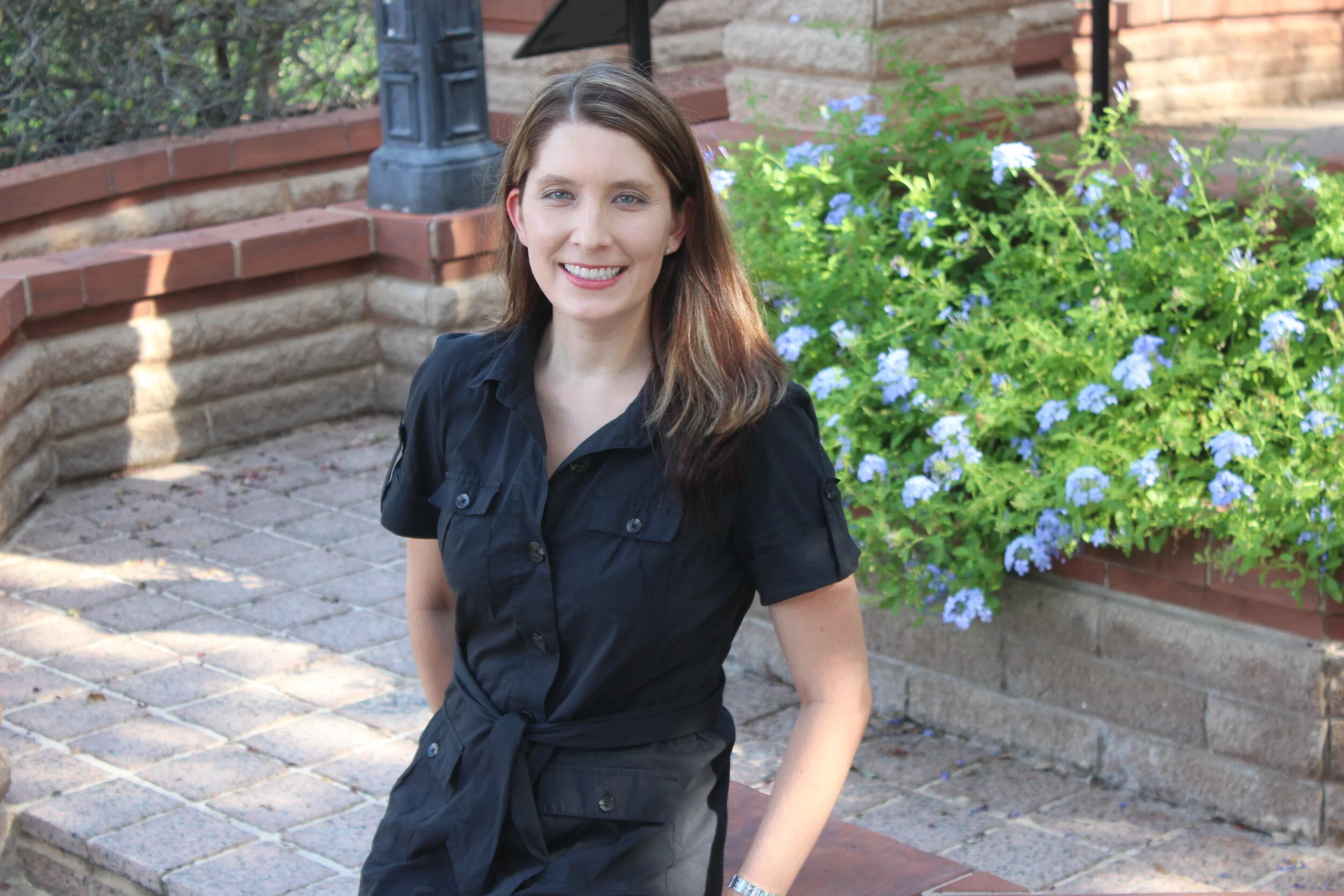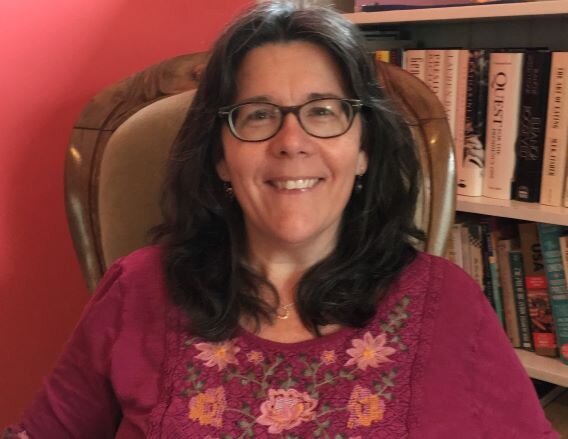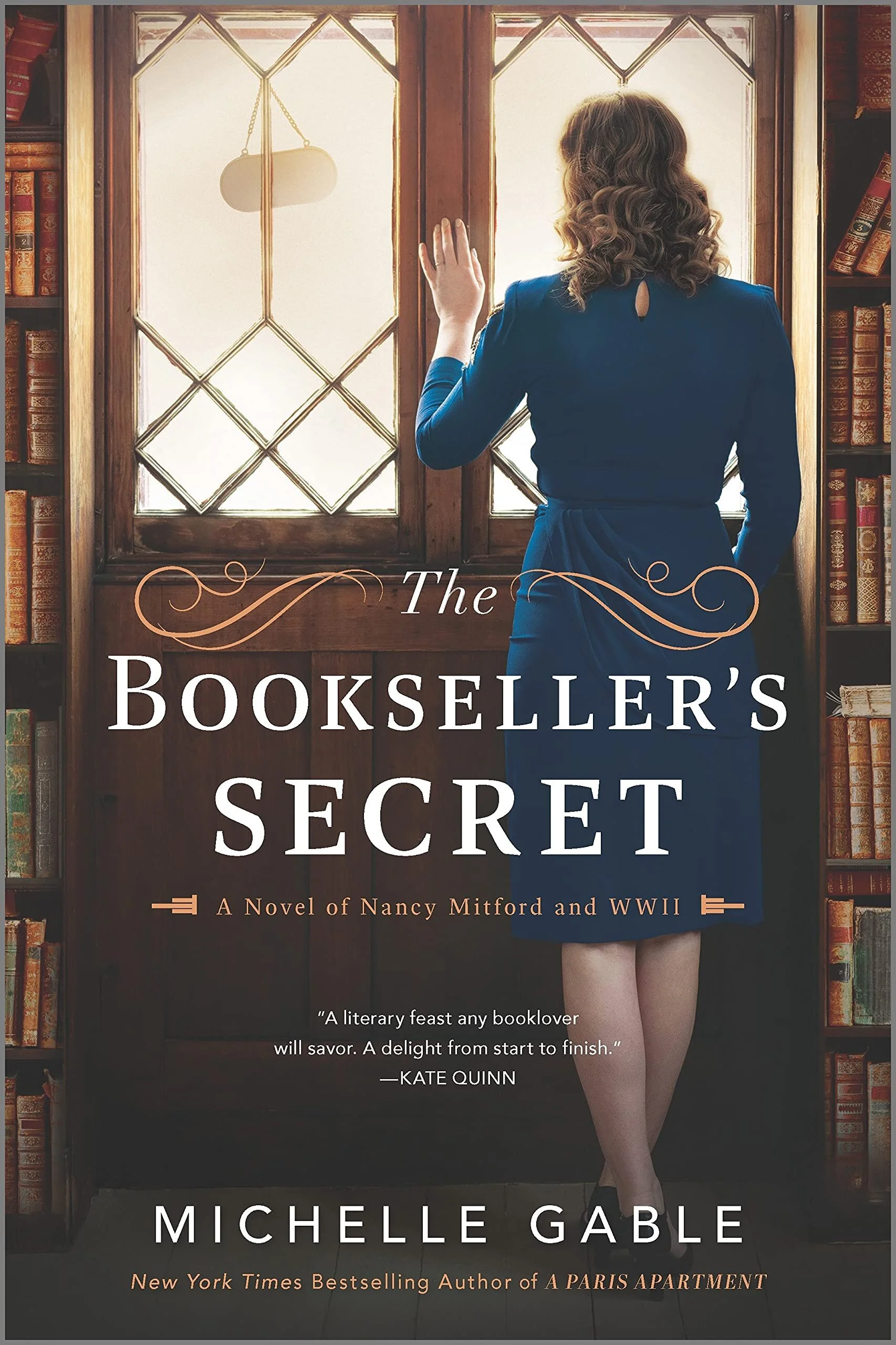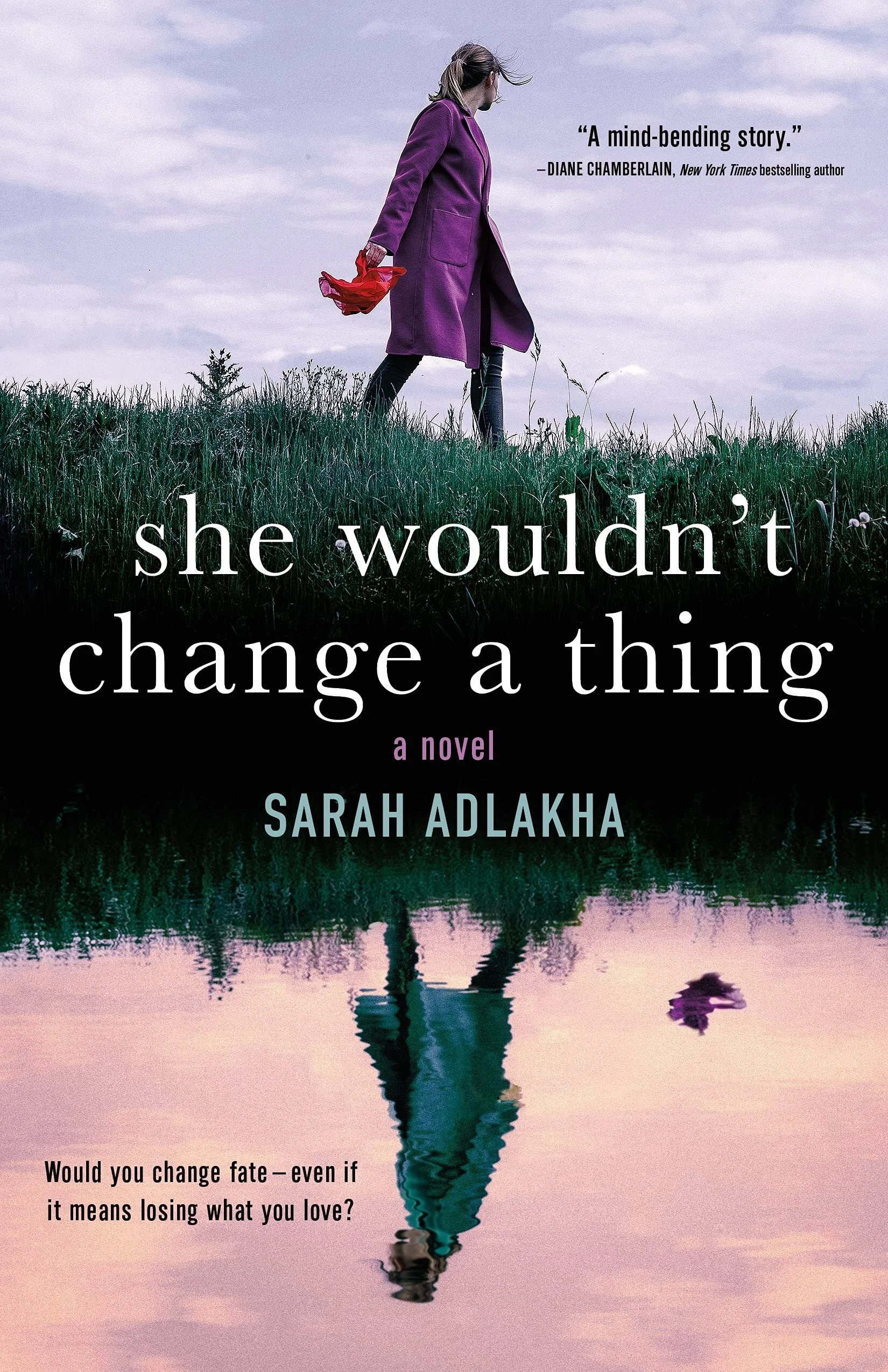25 Authors and their "Failures"
25 Authors and their "Failures"
I recently shared my deep, dark secret on Instagram (that I am an aspiring author) along with my writing journey thus far which included a lot of rejection. Many authors commented on that post with their own "failures" leading up to getting published (and some after they were published.) They were fantastic and inspiring stories that I wanted to compile into one of my special "25 Authors" roundups. We use "failures" loosely here - we really know these are more like "rights of passage" or "stepping stones" or "learning moments" or "road bumps" that all led to getting published.
Interested in following my writing journey? I’m posting IGTV video journals about the process here.
Steven Rowley
My first two manuscripts sit on a shelf, unpublished -- and probably rightly so. I didn't study creative writing and it took me a few attempts to find my groove. My third manuscript I was proud of, but it featured a dog and an octopus. In other words, it was a tough sell. I described it as a cross between Joan Didion's Year of Magical Thinking... and Moby Dick, a pitch got me absolutely nowhere. Rejections piled up and I was deep into the self-publishing process when a freelance editor I hired to do a copyedit convinced me the book had real merit. She helped me get it to an editor at Simon & Schuster and the book, Lily and the Octopus, became a surprise bestseller, was translated in twenty languages and a film adaptation is in the works. I finally had a career! Or so I thought. Sadly, Simon & Schuster rejected my second novel as they thought it was too far afield from my first. I was crushed, but I tried to consider their point of view. Plenty of authors have successful careers writing different versions of the same book over and over again, but I did not want that to be my path. I agonized over what to do for a year, then gambled on myself and took the manuscript elsewhere and it was picked up by Putnam in a pre-emptive bid. The deciding factor in doubling down on my instincts? If I had asked anyone's permission to write about a dog and an octopus, no one in their right mind would have given it. Write what you want. Write it to the best of your ability. Be a passionate advocate for yourself and your writing. Learn to pitch well. And the right path will appear. But have patience too. I published my first novel at 45. Delia Owens, the biggest publishing phenomenon of the past decade, was 70 when her first novel was published. Don't ever give up.
Michelle Gable
This is going to be very long!
On my 31st birthday, I told my husband I was going to try to "do something" with my writing. I was deep into my finance career by then but had been writing novels on the sly since I was ten years old. And so I gussied up my latest manuscript and shopped it to agents, and finally signed with one about 2.5 years later. She tried to shop that novel but it didn't sell, and so I continued to write. I was fine with the rejection, telling myself "that's okay, I'll just write a better book, and a better book, and a better one after that, and if I'm 85 when my first novel comes out, I'll be very experienced!" I don't remember how many books my agent tried to sell but couldn't (and I told her repeatedly to fire me--she's in this job to make money!) Writing though the angst has ALWAYS been my motto.
Finally, about 2.5 years after I signed with my agent (5 years since my birthday pronouncement), and countless rejections, she sent out yet another manuscript and within 24 hours 5 editors wanted to have it! Hooray! Auction time! Unfortunately, on the day of the auction, one by one, every editor dropped out because I was a "debut author and debut authors are just too hard to sell." Debut authors are very sexy now but in 2010 we were still recovering from the financial meltdown and publishers wanted "sure things." I was devastated, especially because my mantra was no longer apt. How was I ever going to get over that debut author hump?
I had to reassess what I was even doing at that point, especially since my real career (which I loved) was going so well. Shortly after this disappointment, I went to Paris for work. When I came back, my agent forwarded me an article about a woman who died in the south of France. When they went through her estate they discovered she'd had an apartment in Paris she'd locked up and abandoned for seventy years. It was filled, floor to rafters, with unimaginable treasures. My agent thought I could write about this and it became my "first" (ha ha!) novel. When it was acquired by St. Martin's Press they were literally the last publisher that hadn't already rejected it. "A Paris Apartment" came out shortly before my 40th birthday. In other words, 9 years after I declared I'd "do something" with my writing, and 6.5 years after I signed with my agent! It was very quickly a bestseller and shortly thereafter many editors reached out to my agent and said, "why didn't you give me a crack at Michelle Gable?" Uhhh, do you want a list of the books of hers you rejected, including this one!?!?
I should mention that in the middle of all this, I co-wrote a book with a friend, which we sold, and then the publisher decided not to publish it because they were going in a different direction as a company. Also, despite five published novels under my belt, and being a "New York Times bestselling author" the rejection doesn't stop. I have written books my publisher and/or other publishers won't publish. I worked out some of my angst about this in the modern storyline of my upcoming novel "The Bookseller's Secret." (To the point my agent had to tell me to tone it down ;) ). The failure doesn't really stop once you're "successful," it just happens in different ways. It's still difficult, especially as I ended up giving up a career that I loved to focus on writing!
James Sie
It took me four years to write my first book, and another five years to find an agent. I queried at least 50 agencies, using querytracker. At first I would diligently research each one, look at their clients, interviews and stats, but by the end, it got to the point where I'd say, "Oh, look, they have a sailboat on their website. I like sailboats. I'll query them!" Found one agent during the midpoint, but after months of readying the manuscript, he decided to leave the business, and I was out in the cold again. But you know what? During that time in the wilderness I kept revising not only my query letter, but also the novel itself. By the time I found my dream agent (who I'm still with) my manuscript was polished, buffed, and bronzed. It gleamed, and I had very little revising to do. I found my agent in August and by the end of September I sold it to a major publisher.
Susan Gloss
My debut novel, VINTAGE, was not actually my first novel. Before that, I had written another full manuscript that racked up dozens of rejections from literary agents. Some of the agents who turned down that first project connected with my writing enough to say that I could contact them again in the future with new work. I made the tough decision to set that first manuscript aside and threw myself into writing the novel that would become VINTAGE. Some of the agents who had passed on my first project offered on the second, including the agent who eventually signed me as a client and sold VINTAGE in a 2-book deal. It only takes one yes!
Samantha Bryant
The biggest mistake I made early on was submitting my work to publishers that weren’t appropriate for that work. More than once I got a very polite rejection from a very patient editor who said basically: your writing is quite good, but we don’t publish this sort of thing. I could’ve saved us both a lot of trouble by doing a little more research and reading the submission guidelines really carefully.
Maggie Smith
My publisher went bankrupt six months before my pub date, leaving me blindsided. I pivoted back to querying and found another small press within three months and my debut will launch March, 2022
Lauren Edmondson
I spent about ten years, in fits and starts, writing my first novel. And by "writing" I mean deleting large portions of it and starting over about a dozen times. After my daughter was born, I finally got the nerve up to begin reaching out to agents. Of course, rejections came fast. Worse, though, was the silence, the non-answers. Luckily, one agent, the lovely Sarah Phair, connected with the story and my voice and offered to represent me. I played it very cool and said that I was in conversations with other agents; in fact, I was in conversations with other agency's slush piles and getting nowhere. I think I wanted to seem "in demand." I'm sure Sarah saw right through me, as it only took me twenty-four hours to ring her again and agree that she should definitely be my agent. I was through one gate, and my husband and I celebrated like I was already published. We began talking about cover art. We were casting the movie. I mean--we were EXCITED. We did not understand just how premature we were!
Sarah and I fiddled with the manuscript for a month or two, and then she walked it out on submission. Though I checked my email every five minutes, I got crickets. Weeks turned into months. Eventually, Sarah broke the news: the manuscript I'd spent ten years completing was not selling, nor was it going to. Editors just didn't know what to do with it. The market was complex, Sarah explained. What was sellable one month was not necessarily sellable the next. And this wasn't sellable. She told me we should set it aside.
But then Sarah asked me a very important question: "Do you have other novel ideas?"
My answer: yes. While we'd been on submission with my first manuscript, I'd been noodling with the idea of retelling Sense & Sensibility in modern day D.C. So after spending a few days grieving and getting over the fact that the manuscript I'd pinned my hopes on was not THE manuscript that was going to get published, I began work on what would become Ladies of the House.
Even after Ladies of the House sold, I quickly realized how much more I'd have to fail before publication. My editor and I rewrote about 80% of the book. I would send in massive edits, only to delete and start over. I'd think--okay, I'm close. I'm almost done. Then her comments would come back, and I'd return to square one. It took A LOT of failing, rewriting, killing of the darlings before we got it right.
Even know, working on my second novel (or third, depending if you count the first unsellable one), I am failing on the daily. I just sent in the first half to my editor for her comments. Guess what?! I failed. I'm reshuffling scenes and rewriting most everything as we speak.
The manuscript in the drawer, the one that didn't sell, I really don't consider a failure, though. It was part of the runway. Without it, I'd still be on the ground. I'm so grateful for what it gave me.
Maggie Giles
I sold my fifth full manuscript. This particular book went through multiple revisions and multiple rejections before it started to garner any interest. When I got my first offer I was so excited that I didn’t really put too much thought into it. All I wanted was an agent. When it came to signing the contract, I froze. Something didn’t feel right in my gut and ultimately I chose to not sign with the agent. It was a difficult and sad choice to make because I felt I’d worked so hard to get to that place and now I had to start all over again. Enter my publisher… they are a brand new Canadian Indie publisher and when they asked for a phone call I was skeptical about signing with them. It wasn’t the route I’d planned to take. But my publisher/editor won me over with her enthusiasm and love of my book! When I got the contract from them, I signed it and sent it off within the hour of receiving it. My debut now comes out April 19, 2022. The rejections and failures along the way have been hard but to know my book is on the horizon has made it all worth it!
Anne Montgomery
Rejection is a major part of being an author. I’ve been rejected thousands of times over the years by agents, publishers, media outlets, and book reviewers, the latter of which were sometimes teens who love unicorns and the color pink. (I mention this because being dissed by them always felt worse than negative comments from actual grownups. Go figure.) The point is, authors need thick skins because rejection is constant. I contacted 100 agents for my second novel and was turned down by all of them, so I tossed my manuscript in a drawer and gave up. Then, for some reason, I pulled it out one day, contacted an agent, and I’ve now been with her for about 15 years. So, take rejection as a teachable moment, not a failure. If no one wants your book, write another one, and another, until someone says yes.
Jenni L. Walsh
So much of publishing is about having the right people supporting, pushing, and falling in love with your book at *exactly* the right time. As my story goes, it took three manuscripts to sign with my first agent. That first agented manuscript didn't find a publishing home, despite ample effort all around, but my second agented manuscript with my second agent did. Now, I'm with my third agent, writing my tenth book, and grateful to momentarily (but hopefully more than momentarily) be hitting my stride after doing a dance with publishing for the past ten years.
Renee Rosen
My first published novel took me 17 years to write and received over 300 rejections from agents. When I finally did find an agent to take me on, it took her two years to sell it. But at least I landed with a major publisher right? At least I was on my way, right? Not so fast.
My publisher wasn't interested in my second novel (which I'd been working on for years as well). Next, my editor left the business and my agent and I parted ways. I was back to square one. It took four more years and three more manuscripts before I found my agent, who found me a home where I've published six novels with a seventh in the works, coming out in 2023.
Hang in there. For every rejection you get, put out five more queries and never, ever give up! Remember, it only takes one yes to change your life.
Natalie Murray
My first (and biggest) failure as an author was selling my unpublished series to a new, untested indie publisher. Once the contracts were signed, I received interest from several big agents and publishing houses that I'd been out on submission to. But – too late! And, after publishing the first book and several other great titles, the publishing house decided publishing wasn't for them and closed up shop. I'm now with a publisher I love, and will Never. Ever. take the first offer I receive again, unless I'm sure it's the right thing.
Stephanie Marie Thornton
I sent out my first novel--what became DAUGHTER OF THE GODS--far before it was ready for agents to read it. After being rejected 186 times, (I am nothing if not persistent!), I finally put that novel in a drawer and wrote THE SECRET HISTORY, which was quickly snapped up. I then tore apart and rewrote DAUGHTER OF THE GODS and managed to place both of them with NAL/Penguin. Now I'm writing my 8th book, so I like to think that persistence paid off!
Audrey Wick
My first manuscript was rejected by publishers. So were my second and third manuscripts. It took writing a fresh, fourth manuscript to get traditionally published.
Brenda Janowitz
There were countless failures on the road to being published! After completing my first novel, I assumed it would be like anything else I'd accomplished in my life-- law school, passing the New York State Bar Exam, working at a large Manhattan law firm-- I would just work hard and achieve my goals. But publishing is like no other industry. Just because you work hard, that doesn't guarantee success. It takes a lot of luck and fairy dust along with the hard work to get anywhere. When I started querying agents, there were so many nos. So. Many. Nos. But, my friends suggested that finding an agent was just like finding a husband (which I hadn't done either, at that point): you only need one. So, when I finally (finally!) connected with my agent, it felt even sweeter. My first book deal followed shortly thereafter. (And, incidentally, finding the man who would become my husband, too! I met Doug two weeks before my first novel came out.)
Jennifer Estep
I wrote seven books over the course of about seven years before I sold KARMA GIRL, my first book. So you could say that I had six failures right off the bat. LOL.
I also estimate that I got about 400 or 500 rejection letters for those six books. I had a three-ring binder that was full of rejection letters.
I think a lot of folks get discouraged and frustrated when they don’t sell the first book that they write, or the second book, or the third. But I would encourage you to keep writing (as long as you are enjoying the process). It only takes one person to say yes. Happy writing! 😊
Liza Nash Taylor
I worked with my first agent for almost a year revising and resubmitting the manuscript for my first novel, Etiquette for Runaways, before she signed me as a client. I was in an MFA program at the time and my writing was evolving in ways I liked but my agent didn’t. Then, we couldn’t agree on the direction the story should take, and parted ways. It was terrifying to cut that tie, after going through the query process at the age of 56, and knowing I had to start over from scratch. In the end, I felt a lot of gratitude to that first agent for her help, but my second agent landed me a two-book deal. Sometimes we have to trust our instincts and jump off a cliff.
Jenny Milchman
I wrote seven books before I got published. A lot of authors have multiple "drawer" books, but what sets my journey apart is that I had literary agents (three of them) all along the way, trying to sell my work. And getting close! Interest from editors at first, then later on, buy-in from the magical sales and marketing teams that must agree to an acquisition, until ultimately the publisher herself rejected my seventh novel, leading me to say, "I must be getting close. Very important people are turning me down now." Seriously, I lived for those entire eleven years on something of a knife's edge, t-h-i-s close the whole time, sure I was about to become a Real Published Author. Then getting knocked to the ground, disappointment sinking over me like a deflating parachute.
How did it finally happen? I started reaching out to authors. I revealed myself--just like you recently did on Instagram--and a community began to be built. The village it takes to publish a book. One of these authors read my eighth novel in manuscript form. And she liked it so much that she gave the ms to her very own editor, who made an offer on it. That book went on to win the Mary Higgins Clark award and be nominated for a bunch more, hit the USA Today bestseller list, and go into multiple printings. To this day it appears on lists like 100 Mysteries to Read in a Lifetime and Book of the Day calendars. And if I hadn't put it--and myself--out there, I might not be here with four more novels to my name.
Ashley, don't ever hesitate to share this hopeful dream of yours. Don't EVER feel like a failure just because it hasn't happened yet. You're not an aspiring writer--you're an emerging one, as the great Louise Penny says. And until you get where you are going, there is a whole village of writers, waiting to cheer you on.
Willa Goodfellow
I wrote the original Prozac Monologues in three weeks in 2005 during an unrecognized hypomanic episode. It was a highly entertaining and, well, quirky account of trying to recover from major depression while in Costa Rica. I got some nibbles over the next three years' worth of submissions. But the publishing world imploded for a while and so did I. I picked up the manuscript again in 2015, discovered in it the evidence for my new diagnosis, bipolar disorder, and wrote an interpretive frame around the earlier monologues, demonstrating how the monologues themselves provided the evidence that I had more than depression. Learning the "pathophysiology of bipolar disorder" and figuring out how to make THAT funny for my "science chapter", plus just becoming a better writer, took another five years. But one year ago yesterday there was a box delivered on my doorstep, filled with books. Happy Birthday to Prozac Monologues: A Voice from the Edge!
Sally Whitney
The best piece of advice I could give to new writers is NEVER GIVE UP. No matter how many rejections you get (I’ve gotten hundreds), keep writing and working to improve your craft. Don’t be afraid to rewrite and resubmit. My hundreds of rejections eventually led to 24 published short stories and two published novels.
Gillian Harvey
I finished my first book at 24, but was published for the first time at 42. During the intervening years I learned a lot about rejection! In retrospect, my biggest 'crime' - the reason I wasn't picked up earlier - was my lack of editing. I've always been someone who races to the finish - and I'd be so excited every time I completed a book, I'd barely give it a flick over before posting (back in the day) or (later on) emailing it into the void. It was only really when I started freelance writing in my 30s, that I began to think more about audience and to understand the incredible improvements that a good edit can make. I'm sure this is one of the reasons I finally made it over the line.
Sometimes I look back and wish that I'd started my journey as a published author earlier, but at other times I realise that I was lucky it took me so long. Because I'm a more rounded person with more life experience, and I'm sure that has enriched my writing no end. I'm also more able to cope with the ups and downs of the author experience (of which there are MANY) - not sure I'd have been quite so Zen in my 20s. (Don't get me wrong, I'm still a tangled knot of stress most of the time, but I would have been a complete mess back then).
Over the years, I wrote 6 books (my 7th was published), submitted to countless editors and tried every trick in the book (including once weaving the lyrics from the Beatles 'Paperback Writer' into my submission letter (I still cringe when I think about that)).
Despite all the 'no thankyous' I kept going. And finally landed an agent and a deal. Since then, there have been more rejections - not every manuscript written by a published author gets accepted. And I've had to toughen up.
Rejection is part of the journey, and although it's painful, if you can pick yourself up and keep going, you'll get there eventually.
Ellen Birkett Morris
Lost Girls started out as an entirely different book with a male protagonist. When I got a tons of rejections I took another look at the manuscript and saw that the women in the stories were the most compelling characters. When I let their voices shine the book got snatched up right away! Keep writing, keep revising, success will come.
Rob Swigart
I got so angry at the writing in the Da Vinci Code I decided to write one of my own using its structure as a model. With a copy of the book beside me I began The Delphi Agenda. After a few chapters I got intrigued with my own characters and threw the model away. What began as a parody became a book that virtually every agent I approached told me "There's no market." It sat in a drawer for several years until I met Julie Smith of BooksBNimble, a Kindle publisher. Now it's the first of a series (third just finished) that has been bringing me actual dollars since 2013.
Tessa Wegert
It took five different manuscripts and almost a decade of writing for me to get a contract, but I just signed my second two-book deal in two and a half years. Maybe I'll be able to sell those early books one day, or maybe not, but they taught me how to write and I wouldn't be where I am now without them.
Allison Brennan
I was very excited when my first manuscript was requested by an agent. Then four weeks later I received a letter with a one-word rejection written on my cover page: SUPERFICIAL. Over two years and five manuscripts later, I earned more requests ... and over 100 rejections. My fifth manuscript sold and I thought I knew what I was doing. When I turned in my second book I never expected to get rejected again (almost). My editor sent me a revision letter that basically said, "I love your first chapter and your main character! But the rest of the book falls apart. Basically, you wrote chapters that didn't need to be written and left out all the good stuff." I was heartbroken and thought my career was over before it really began. But I rewrote the entire book and it ended up being among my editor's favorites of the 17 we worked on together.
